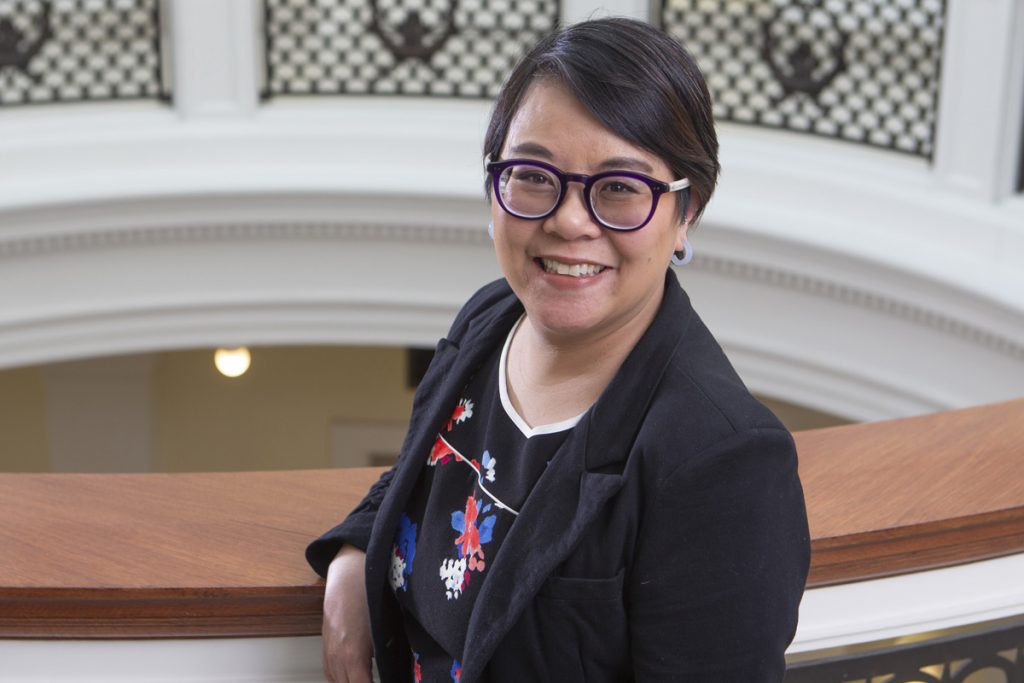| Oct 1, 2025
The Case of Contracts

Helping Contract Law Students Grapple With Legal Principles in the Court of Everyday Life
Like many first-year law students, Emily Houh felt an initial pull toward the obvious human drama of criminal law and balked at a required 1L core course in contracts. Her perspective gradually shifted, as she and her classmates discovered that behind every contract dispute is a story of a failed business deal or abstract rule made rich with human conflict.
“Like many of my students, I found contract law to be way more interesting than I initially thought,” Houh says. She came to enjoy the puzzle-like quality of contracts, the three-way collision of procedural rules, legal concepts (unconscionability and good faith), and the perpetually gray area of what constitutes a fair contract.
For starters, Houh says, contract law peels back layers of economic, political, and social history, reminding us of the long legal arc that permits all citizens to enter into contracts.
“Once you understand the implication of gaining the freedom and liberty to enter into a contract, you can start to consider the notion of fairness, equity, and social justice,” Houh says, “and how that expresses itself across all forms of capitalism as practiced in the United States.”
Canon Law Roots
Houh points out that contemporary US contract law can trace its origins to Canon law and Judeo-Christian doctrines regarding the moral obligation to keep one’s word. Rooted in the Latin maxim pacta sunt servanda, or “agreements must be kept,” the Church taught that a promise made with serious intent created a binding moral duty, even without formal consideration (a key difference from later common law).
Canon law led other legal systems to elevate mutual consent as the core of valid agreements.
This idea, that voluntary, mutual consent creates legal obligation, was imported into early contract law.
Business Law to Teaching
Houh worked at the Legal Assistance Foundation of Chicago, primarily focusing on housing law (including evictions and subsidized housing), and later practiced commercial litigation before transitioning to an academic track and career in 2003. She admits her love of teaching contracts emerged over time. “I started teaching contracts because I had to,” she says. In 2008, Houh was appointed the Gustavus Henry Wald Professor of the Law and Contracts.
Gustavus Henry Wald (1853–1902) was a distinguished American legal scholar, educator, and practitioner whose contributions to contract law and legal education have left a lasting legacy. Educated in Cincinnati’s public schools, Wald earned his undergraduate degree from Yale College in 1873 and his LL.B. from Harvard Law School in 1875.
Wald’s annotations and commentary on the (1881, 1885) American editions of Sir Frederick Pollock’s seminal Principles of Contract at Law and in Equity enabled scholars and courts to challenge classical notions of contract as neutral and take a more critical look at how contract law can reinforce power imbalances and systemic inequality. Wald helped early scholars grasp the underlying equitable principles in contract law.
Contracts, Equity, and Justice
Houh carries that work forward in her own scholarship and as an affiliated faculty member of the Nathaniel R. Jones Center for Race, Gender, and Social Justice. One area of focus for Houh’s scholarship and the broader work of the Center concerns the alternative, shadow, or fringe economy, which targets individuals with credit, banking, and goods needs who lack traditional providers.
In retrospect, Houh recognizes how the alternative economy took root in her hometown of Detroit during a prolonged period of post-industrial decline. Like any major city with large neighborhoods underserved by banking, grocery, and other needs, Detroit became fertile ground for payday lenders, check cashers, rent-to-own stores, pawn shops, and subprime auto dealers. According to the Brookings Institution, more than 25% of Detroit residents were unbanked as of the early 2010s, and fringe financial service and goods providers became normalized in daily life.
Data from the FDIC (2021) and the Federal Reserve show that approximately 20–25% of Americans (65–80 million people) rely on some aspect of the fringe economy for banking, furniture, transportation, or basic necessities.
“Canon law prioritized fair exchange,” Houh says. “Rather than promoting an economy built on the idea of ‘how much can I squeeze out of you,’ it prioritized equitable, fair exchange. Did you get the fair value of what was promised?”
In the contemporary context, there’s a tendency to emphasize free will. If you entered into a contract that doesn’t work out for you, that’s on you. But in reality, power relationships impact almost every contract, except for large commercial and corporate bodies which manage something of an arm’s length negotiation.”
As Houh scans today’s legal, political, and economic landscape, she knows that prevailing ideas and ideologies continue to shift, shaping our notions and study of law.
“Teaching contracts,” she says, “allows all of us to be disabused of the misconception that contract law is cold, hard, black and white, and boring.”